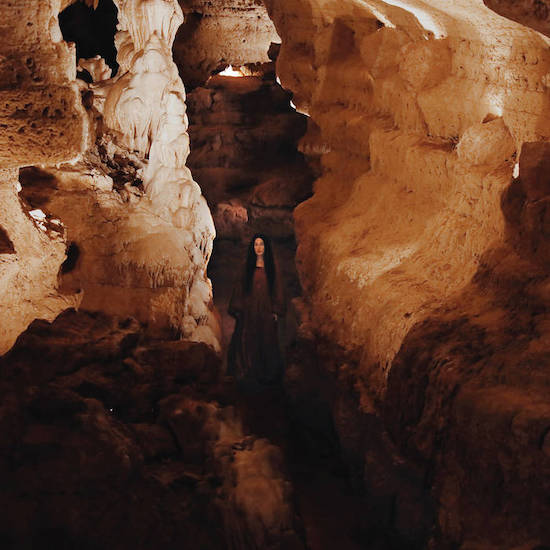Nika Roza Danilova is a performer of the unreal. Trained in classical opera, the Wisconsin-based artist otherwise known as Zola Jesus sings with the force of a tree fell from lightning, haunted with grief. Her debut album The Spoils felt like a spell thrown into a mirror of static, and more than a decade later, her newest album trembles with a similar sense of rupturing enchantment. Translating to “ruler” in ancient Greek, Arkohn grapples with the existential concerns of today. Namely, how do we push past disillusionment – from the pandemic and the institutions that have failed us – to envision a world of true care?
Central to this question and new to Danilova’s songwriting is the power of the collective. While her last album Okovi excavated the singer’s searingly personal experiences with death, the stakes of this LP are more socially concerned. Danilova has made her partisan conscience visible before on social media, but ARKHON marks one of the first times she’s used music as a direct space to mediate her relationship with the political. Opener and lead single ‘Lost’ sounds like a deconstructed horror movie – a running gasp loops above galloping drums and foghorn synths – that catalyses fear into action. “Forsake all that I’ve got / Recombine into the leaves / Stick around and then we’ll see,” Danilova whispers, her voice echoing on the precipice of change.
Like her vision for the future, ARKHON was not a project realized alone; compared to previous albums, Danilova said the album is more a product of collaboration rather than a solo venture. She draws help from Randall Dunn (Sun O))), Cloud Nothings) and Matt Chamberlain (Fiona Apple, Perfume Genius), both of whom bring out the most gnarled parts of Danilova. In the glacial and vast noise of ‘Fault’, Danilova’s spectral presence still acts as a purging force for guilt with its mantra (“It’s not your fault”). The propulsive, grunge-eaten rock of ‘Sewn’ wreaks even more havoc. Its explosive percussion harnesses the energy of Curve and acts as the perfect kindling for Danilova’s tempered rage: “Won’t be long to weather / If together / we bite and claw.”
Behind all the torrential power that propels ARKHON forward, though, lies something softer: a necessary acceptance of how fragile we are as individuals, our lives constantly being fractured and rebuilt. “I can’t believe just what I’m seeing,” Danilova belts on ‘Efemra’, as if the very fact of life could be filled with pleasure and contentment. Nothing, of course, is quite that simple. The following track ‘Do That Anymore’ seems to steal hope away: “What can anyone say / When our mouths are all taped,” Danilova laments. Mourning what was and is, however, does not solely have to be an act of despondency; it, too, can be a way of imagining what is to come. So Danilova stands on the cover of ARKHON composed, darkness shrouded in front of her, yet light scattered above.


